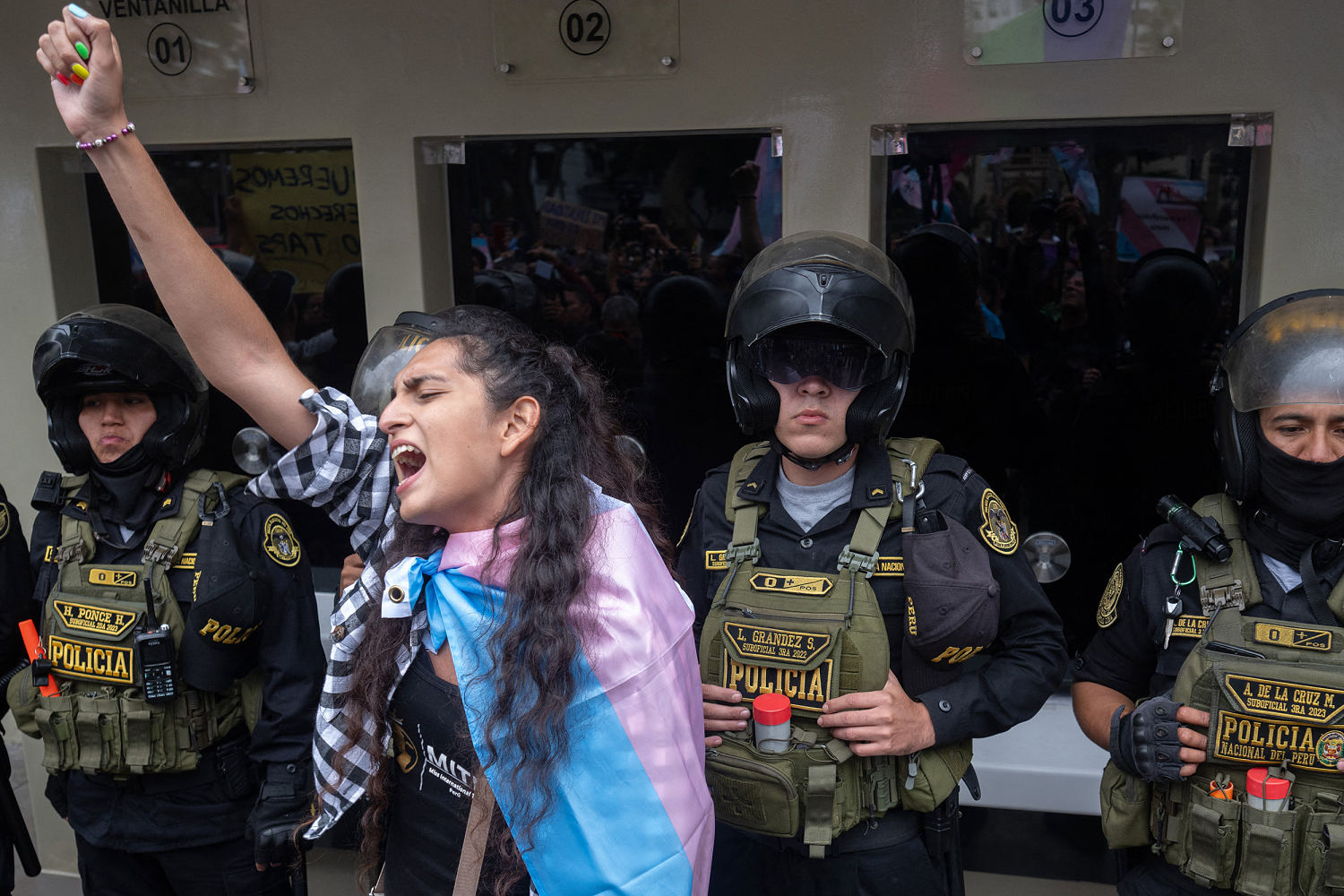Peru classifies transgender identities as ‘mental health problems’ in new law

LGBTQ advocates in Peru protested in the capital city of Lima last week after the Health Ministry issued a new law that deemed transgender people as having “mental health problems.”
The supreme decree, signed by Peruvian President Dina Boluarte and published May 10, updated the ministry’s list of insurable mental health conditions to include “transexualism,” “gender identity disorders” and “cross-dressing.”
In 2019, the World Health Organization redefined its terms on gender identity-related health, moving conditions of “gender incongruence” out of being defined as “mental and behavioral disorders” and into the “conditions related to sexual health” category.
“This reflects current knowledge that trans-related and gender diverse identities are not conditions of mental ill-health, and that classifying them as such can cause enormous stigma,” the guidance reads.
On May 11, the Peruvian Health Ministry released a statement, insisting that the update is to ensure comprehensive mental health interventions.
“The ministry ratifies its position that gender and sexual diversity are not diseases.” it stated. “In this framework, we express our respect for gender identities, as well as our rejection of the stigmatization of sexual diversity in the country.”
Despite this, the ministry reiterated that the update to the country’s Essential Health Insurance Plan will remain in force.
After the statement was issued, a collective of more than 60 national LGBTQ organizations staged a protest Friday in front of the ministry’s headquarters in Lima.
The protest coincided with the International Day Against Homophobia, Transphobia and Biphobia, which is celebrated annually May 17.
The organizations said in a joint statement that the decree perpetuates “an archaic vision” that makes transgender people targets of aggression.
“The adoption of such a decree constitutes a serious setback in terms of our rights and in the recognition of our dignity as individuals,” the statement continues. “This measure not only reflects a lack of understanding and respect for sexual and gender diversity, but also has devastating consequences for our lives.”
Transformar, a trans-feminist Peruvian organization, urged the ministry to reconsider the decree, and “adopt measures that respect and promote inclusive public policies.”
“This is not only a setback in terms of human rights and recognition of diversity, but it also opens the door to aberrant practices such as conversion therapies,” Collective Pride March, another Lima-based rights group, said in a statement. “Gender identity is not a disease, it is part of human diversity and must be respected and protected as such.”
In its statement, the Health Ministry clarified that sexual orientation and gender identity do not constitute health disorders, and individuals should not be subjected to treatments such as conversion therapy.
On Wednesday, U.S. Rep. Robert Garcia, D-Calif., said that he would be working directly with the State Department to “push back on this direct attack on LGBTQ+ Peruvians,” because the measure “moves Peru backward.”
“As a gay Peruvian-American and the first Peruvian American to serve in Congress, it’s clear to me the decision by the Boluarte administration and the right-wing Congress to attack and label trans and intersex Peruvians as ‘mentally ill’ is discriminatory, dangerous and shameful,” he said.
In the United States, the American Psychiatric Association has used the terminology “gender dysphoria” in its Diagnostic and Statistical Manual of Mental Disorders since 2013 — replacing “gender identity disorder” — focusing on the distress related to transgender people’s experiences, rather than on the identities themselves.
For more from NBC Out, sign up for our weekly newsletter.




